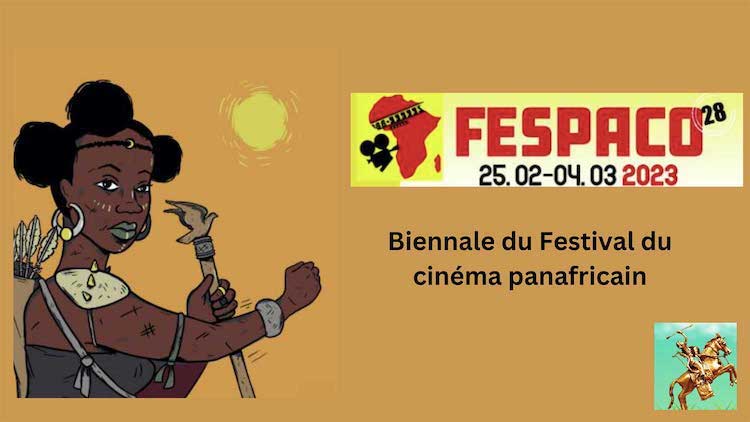By Lisa Vives, Global Information Network
NEW YORK | OUAGADOUGOU, 6 March 2023 (IDN) — In the bad old days of French colonial rule, Africans were forbidden from making films. As a result, one of the first films ever produced by an African “Afrique-sur-Seine” (Africa on the Seine), was made in Paris in 1955 by students. Among them was Paulin Soumanou Vieyra from Benin, now considered a pioneer of African cinema.
Then, in 1969, a group of cinema enthusiasts launched FESPACO in Burkina Faso (then known as the Republic of Upper Volta). The country had then only been independent for nine years.
People in Burkina Faso didn’t have much experience with cinema, but they were passionate about it.
“African cinema is the youngest in the world,” Apolline Traore told the German news service DW. “The West completely financed it for a long time. Meanwhile, we try to raise the money for our films ourselves.” She adds that she has the impression that “in the West, they have used up all the stories; the audience now wants to see ours.”
This year, there were many outstanding African filmmakers, especially women. Women directed about half of the 170 films—works from Egypt, Angola, Kenya, Morocco and Senegal, among others that were submitted to FESPACO to compete.
“I’m not surprised at all,” Tunisian jury president Dora Bouchoucha told DW. “And I don’t think it surprises anyone in all of Africa—only outside the continent. I made my first film 25 years ago; my team was almost all women. The best production managers are women. Filmmaking is all about details. And everyone knows that women are more aware of details. Also, women care less about their ego. We make films our way—and we do it very well.”
Despite—or perhaps because of all the problems that Burkina Faso, Mali and other African countries have had to face, especially with terrorism, “The Culture of Peace” was chosen as the motto of FESPACO 2023 (Pan-African Film and Television Festival of Ouagadougou).
“The world today is confronted with many problems, all due to social inequalities, exclusion, extremism and the arms race,” the festival homepage states. Films could contribute to thinking together about how to secure peace and social cohesion.
This is also what Apolline Traore wants, who was in the race for the main prize, the Golden Stallion of Yennenga, for her film “Sira.” This trophy is also a tribute to strong women: Princess Yennenga was a warrior who went into battle on her stallion fearing nothing and no one.
After a review of the films, Youssef Chebbi, 38, was chosen for the prize—the Golden Stallion of Yennenga for his film “Ashkal”—a murder mystery set in his native Tunisia.
The film sees a male-female police duo unravel a dark and puzzling case in the Gardens of Carthage.
Sira, the tale of a woman’s struggle for survival after being kidnapped by jihadis in the Sahel, won Burkinabè director Apolline Traoré second place in the fiction category.
And third place went to Kenya’s Angela Wanjiku Wamai for Shimoni.
In her closing remarks at the 4 March awards ceremony, Fespaco jury head and producer Dora Bouchoucha, made an apparent reference to racist remarks by Tunisia’s president about sub-Saharan Africans changing his country’s demographics as part of “plot” by foreign powers.
“I am deeply saddened and at the same time grateful for my actions in terms of promoting African cinema are recognized in Burkina Faso,” said Ms Bouchoucha. [InDepthNews]
Image credit: aazmuth
IDN is the flagship agency of the Non-profit International Press Syndicate.
Visit us on Facebook and Twitter.
We believe in the free flow of information. Republish our articles for free, online or in print, under Creative Commons Attribution 4.0 International, except for articles that are republished with permission.

